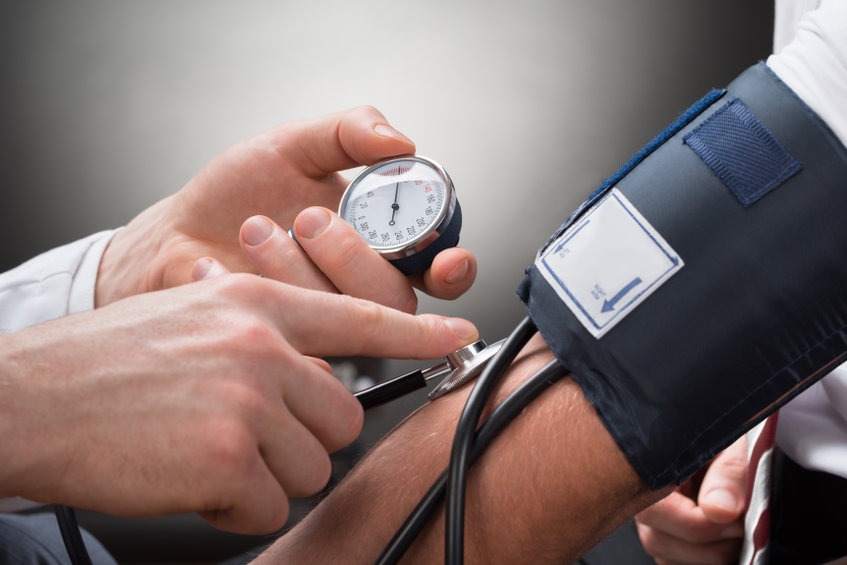
Water, our most important foodstuff, is inexpensive and calorie-free. In Germany, it comes out of the tap almost everywhere in very good quality. Nevertheless, water is still often underestimated. “We pay too little attention to healthy drinking habits,” says Dr. Michael Boschmann, senior physician at the Franz Volhard Center for Clinical Research at Charité Universitätsmedizin Berlin. How drinking behavior affects our heart and how it can prevent cardiovascular problems is roughly summarized in this article.
Drinking water prevents cardiovascular problems
Have you ever experienced getting up quickly after sitting for a long time and feeling dizzy? In healthy people, blood pressure hardly changes when they get up from a sitting position. Exercise activates the sympathetic nervous system, the blood vessels contract and the heart beats faster and stronger. This stabilizes the blood pressure.
However, especially in older people (the proportion of body water decreases with age!) or those whose nervous system is impaired, blood pressure drops dramatically when standing. Dizziness, circulatory problems or even fainting are the result. As some of those affected noticed that drinking water alleviated these symptoms, Professor Dr. Jens Jordan, Director of the Institute of Clinical Pharmacology at Hannover Medical School, whose work focuses on high blood pressure, among other things, investigated this phenomenon.
It’s really exciting that a lack of water can cause both high blood pressure and low blood pressure, and that drinking water can balance both. A great example of the intelligence of nature and the biology of our bodies!
Water shortage – effects on heart and kidneys
The German Nutrition Society has set limits that show us what happens in the body when we lose too much water.
Cardiovascular problems occur from a water deficiency of just 5 percent – for a person weighing 60 kilograms, this corresponds to 3 kilograms. The heart rate increases because the blood volume decreases at the same time and the heart has to work harder to distribute the blood evenly throughout the body and therefore pumps faster and faster. Blood pressure also rises and the cardiovascular system is under great strain.
In everyday life, everyone has a different sense of thirst. Children and older people, for example, do not yet have a fully developed or reduced sense of thirst. They don’t drink enough because they simply aren’t thirsty. This is a major problem, especially for elderly people who live alone or simply no longer have the motor skills. The result: you dehydrate slowly and unnoticed. One long-term consequence of dehydration med.: Volumenmangel der extrazellulären Flüssigkeit, u.a. des Blutplasmas – dem Körper wird weniger Flüssigkeit zugef..., for example, is the formation of kidney stones.
Effect of oxygen-ion water on the cardiovascular system
Cardiovascular problems are the most common cause of death in industrialized nations. Patients themselves can contribute to prevention and treatment.
For example, we know that there is an imbalance between oxygen demand and oxygen supply in many cardiovascular problems. It is also known that dehydration is often involved in the development of heart and lung disorders and diseases. However, if it is a lack of oxygen and water that, among other reasons, can lead to sometimes serious disorders and illnesses, then not only the general question arises as to how this can be prevented, but also the specific question of whether the administration of oxygen-enriched water has therapeutic effects.
According to recent studies, this is particularly the case for oxygen-ion water. In the production of this water, water is first filtered, then enriched with medical oxygen and finally magnetized and centripetally swirled.
Normal tap water has an average oxygen content of around 8 mg per liter. Spring water has an oxygen content of around 14 to 16 mg per liter. Today, water can be enriched to a content of over 80 mg oxygen and more per liter.
Suitably treated water contains oxygen in the form of fine bubbles, which enter the large bloodstream via the oral mucosa and the capillary system when sipped. There the blood is enriched with oxygen. The higher oxygen content of the blood after administration of oxygen-ion water can be objectively measured in the form of the oxygen partial pressure.
Many observations and studies show positive effects of administering oxygen-enriched water on numerous subjective and objective cardiovascular parameters. According to the patients who consumed half a liter of oxygen water daily and who were compared with those who drank normal tap water, the feeling of tiredness, fatigue and headaches subsided and the ECG showed clear positive effects.
Tips for a heart-healthy diet
Of course, the following tips not only help to protect and keep your heart healthy and prevent cardiovascular problems. Your entire organism will benefit from this:
- Avoid ready-made products as far as possible.
- Instead, buy seasonal food from the region, such as fresh, organically grown fruit and vegetables.
- If you eat animal products, pay attention to organic, species-appropriate animal husbandry or buy products from pasture farming.
- Use unprocessed rock or primary salt and season your food with fresh herbs as often as possible.
- When using fats, always make sure they are of first-class organic quality and consistently avoid hydrogenated fats such as margarine, hydrogenated palm or coconut fat. Finished products contain almost exclusively hydrogenated fats.
- Swap unhealthy snacks (potato chips, pretzel sticks, cookies, etc.) for healthy alternatives such as nuts, almonds, spelt sticks, rice cakes, chocolate with a high cocoa content, etc.
- If possible, drink two liters of still water a day so that your body can excrete harmful substances as quickly as possible.
